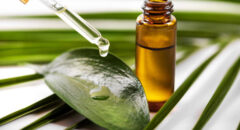
If you suffer from eczema, you might be familiar with the non-stop itching, dryness, and discomfort it brings. But be aware of another culprit waiting to wreak havoc on your already sensitive skin: Staphylococcus aureus, commonly known as “staph” bacteria. Many people with eczema also get staph infections, making their skin condition worse and harder to treat.
The Alarming Connection
While eczema is a skin condition characterized by inflammation and itching, research has revealed a strong link between it and staph bacteria. Research suggests about 10 percent of individuals in the general population carry staph on their skin. Astonishingly, this number skyrockets to nearly 80 percent among people grappling with eczema.
The reasons behind this are still unclear. However, experts speculate that differences in the skin barrier, often caused by genetic mutations, may make it easier for allergens and bacteria like staph to penetrate the skin.
Additionally, people with eczema produce fewer natural antibiotics called antimicrobial peptides, which makes them more susceptible to infections.
It remains unclear whether the staph bacteria contribute to the development of eczema or capitalize on eczema flare-ups for growth. Nonetheless, staph can disrupt the skin’s healthy microbial diversity, outcompeting beneficial bacteria and unleashing havoc.
Staph can also produce byproducts undermining the skin’s defenses, such as creating biofilms where bacteria thrive and secreting enzymes that escalate inflammation.
RELATED: Staph Infection Uncovered: What It Is and How To Avoid It
Recognizing the Signs
Early recognition of a staph infection is crucial for effective management. Look out for the following signs, as advised by the American Academy of Dermatology (AAD):
- Eczema symptoms that do not respond to treatment or remain unimproved or worsen despite standard care.
- Honey-colored crusts: The appearance of honey-, yellow-, or orange-colored crusts on top of eczema.
- Pus-filled blisters on eczema-prone areas are a vital sign of a staph infection.
- Sores that resemble cold sores or fever blisters on your eczema-affected skin.
- Red, swollen, and painful bumps on your skin, especially within eczema-prone areas.
- Red streaks on your skin that seem to be spreading is another worrisome sign.
If you observe any of these symptoms, do not hesitate to contact your healthcare provider promptly.
Prevention and Management
Preventing staph infections in eczema patients requires a multi-pronged approach. Dr. Sabra Leitenberger, an associate professor of pediatric dermatology at Oregon Health & Science University says, “People with eczema are prone to more widespread








